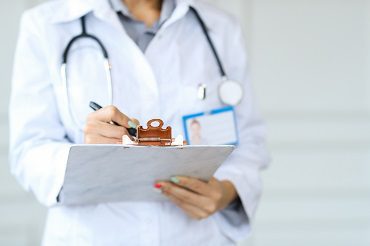Paloma da Silva Aguiar
Lawyer at Marcos Martins Advogados
In view of the lack of physical structure in several Brazilian states, it was decided to expand the number of beds and medical equipment to combat the Coronavirus, using public places that were available to organize the entire structure. In São Paulo, for example, we can highlight the Pacaembu Stadium and the Anhembi Autodrome.
So, with these structures being used to combat the virus, the state needed the help of health professionals, selecting candidates for this kind of help.
However, given the risk of contagion by these professionals, whether they were assigned to state aid bases, private hospitals or the public health system, better known as the Unified Health System – SUS, questions arose in the National Congress about the possible payment of compensation in the event of death due to covid-19 or permanent incapacity at the end of the contagion.
This questioning, however, proved to be so solid that Bill No. 1,826/2020 was drafted,specifying the payment of financial compensation to the dependents of these health professionals and/or workers.
These were the professionals included in the bill:
– Community health workers or endemic disease control workers who have visited homes during the pandemic;
– Higher education workers/professionals who have been recognized by the National Health Council;
– Workers/Professionals at technical level, or even Auxiliaries, with any links to the health area;
– Workers/Professionals who, although they don’t have a primary activity in the health sector , assist in the operation of care, for example: administrative and pantry services, security, cleaning, driving health-related vehicles (ambulances), laundry, among many others.
However, at the suggestion of the Federal Senate, the Chamber of Deputies approved the inclusion of other workers and/or professionals, such as nutritionists, social workers, physiotherapists, laboratory technicians, doctors or other professionals who work in morgues, as well as gravediggers.
Therefore , the obligation to indemnify is laid down in Article 927 of the Civil Code – CC, “in verbis” :
Art. 927 – Whoever, through an unlawful act (arts. 186 and 187), causes damage to another, is obliged to repair it.
Sole paragraph – There will be an obligation to repair the damage, regardless of fault, in the cases specified by law, or when the activity normally carried out by the perpetrator of the damage involves, by its nature, risks to the rights of others.
Health workers and professionals who take risks every day to fight the pandemic should be recognized for their efforts and all the knowledge they pass on during their work. The understanding of the National Congress, of course, goes against the provisions of this provision, since the natural risk of the activity carried out is evident.
The amount of R$50,000.00 was established as compensation and any additional amount, all under the terms of the Bill.
This amount, in turn, is provided for in Article 944 of the Civil Code – CC, “in verbis” :
Article 944 – Compensation is measured by the extent of the damage.
Sole paragraph – If there is an excessive disproportion between the seriousness of the fault and the damage, the judge may equitably reduce the compensation.
It is clear, therefore, that this Bill attempts to stipulate specific amounts, which in turn does not exclude the right of a spouse, partner or dependent to bring an action for compensation, due to the deceased’s place of work or permanent incapacity, or against the State itself due to the support structure, always with proof of the relevant and favorable arguments for requesting a higher amount.
This Bill has already been approved by both Houses of Parliament , but was vetoed by the President of the Republic, and is awaiting a new vote by the Senate and House of Representatives for a final decision.








